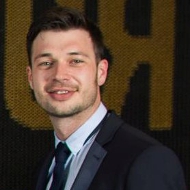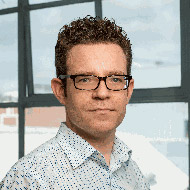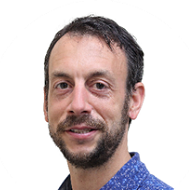Daniel is a PhD student and air quality consultant. His research focuses on the role aerosols have to the concentration of atmospheric oxidants. Most of his day is taken up performing experiments, fixing instrumentation, reading papers or interpreting experimental results. Daniel also works as an Air Quality consultant as a contractor for his previous employer conducting desktop assessments of the impact development is likely to have upon local air quality.
After Daniel finished his MRes in atmospheric physics he became an Air Quality Consultant and worked for a number of companies over 8 years, allowing him to develop a very broad set of skills within air quality and also odour assessment. Consequently, he gained a passion for the subject and a will to improve air quality across the country. As a chemist Daniel realised that atmospheric chemistry is virtually non-existent within local air quality assessment within the UK and models rarely show any agreement with monitoring data. In order to address this issue and to be taken more seriously by the old establishment, Daniel is currently pursuing a PhD in the subject.
Daniel joined the IES and IAQM in 2010 and became a Chartered Scientist in 2011.
“The IES is great. It’s the only forum in the country that gets air quality professionals together to share their own experiences of producing air quality assessments and ideas of how air quality could be improved. This allows for best practice to be agreed and published. The recent publication of a number of guidance documents is testament to this and the hard work done by IES members. Without such an organization air quality assessments would not be standardized and the quality of assessments would be much poorer… The IES has also allowed me to become a Chartered Scientist. This has helped me prove my credentials to future clients and employers.”
Within his current role, Daniel particularly enjoys the ability to be constantly learning and discovering new things about aerosol chemistry and the atmosphere. One day he could be working on tropospheric aerosols, the next mesospheric aerosols and the day after that Daniel could be talking to people about Titan’s atmosphere.
“The role of aerosols is an area of science which is very poorly understood reflected within the uncertainty of the contribution of indirect effects of aerosols to climate change as predicted by the IPCC. I work with some of the best minds within this area of science… [and] with some very interesting instrumentation and have gained a deep knowledge of how they work as well as how to fix them!”
Daniel’s work allows him to attend many National and International conferences on air quality and climate change science and will be presenting my research this year at the European Aerosol Conference 2015 in Milan where Daniel hopes to have some interesting discussions with fellow academics in this area.
Daniel hopes that his PhD will lead to a much deeper understanding of the chemistry involved within the atmosphere, and he will be able to take some ideas to improve air quality to market. Daniel looks forward to future collaboration with the IES and IAQM to launch such ideas. He would also like to carry on with his research in aerosol chemistry as not only are they a massive public health problem but may also be lengthening the lifetime of greenhouse gases such as methane in the atmosphere.




